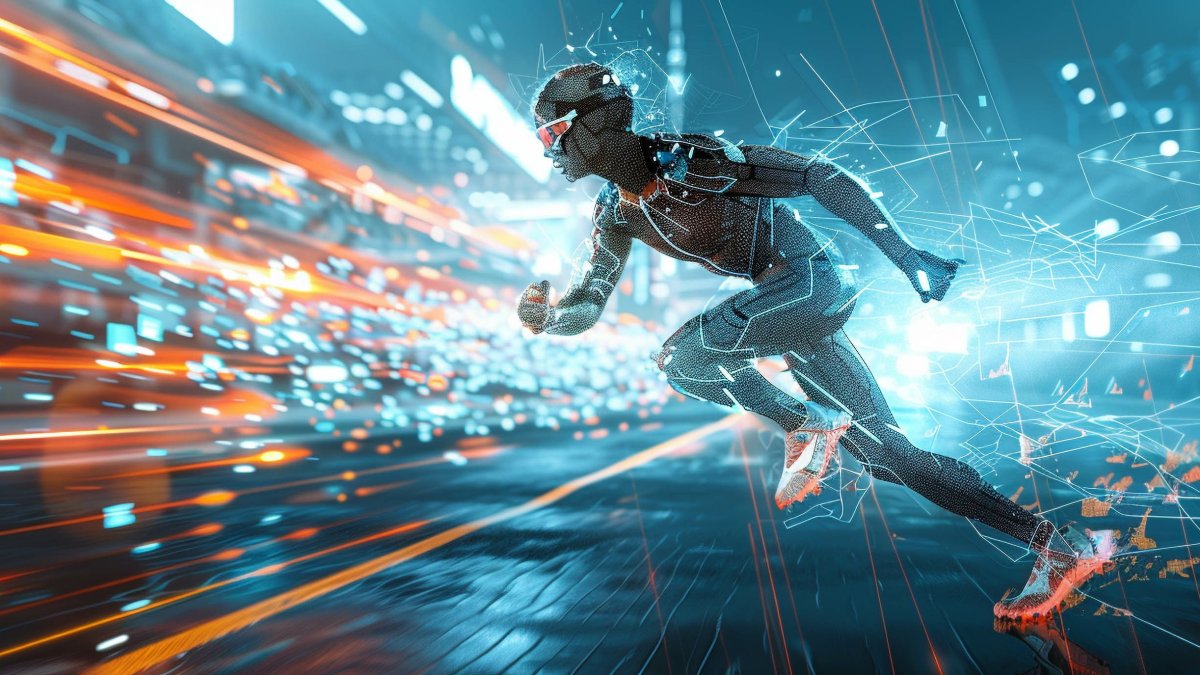The following content is created in partnership with Intel. It does not reflect the work or opinions of the NBC Chicago editorial staff. Click here to learn more about Intel.
What is athletic talent? Where can we find it? And how can we make sure we don’t miss it?
It’s long been clear that current scouting methods miss a huge amount of athletic potential. Consider football (that’s soccer, for Americans), the world’s most popular sport, with more than 300 million athletes of all ages and skill levels playing, but only 130,000 elite and professional footballers. Finding the best players—who could be in any town or village around the world—has, traditionally, been like finding a needle in a haystack. It’s very likely that some of the most talented athletes have never and will never find their way to elite competition at all.
But what if finding that talent was as easy as capturing video on a smartphone?
Intel’s AI platforms, access and the future of sport
This past March, the International Olympic Committee (IOC) and Intel representatives toured five villages in Senegal, where they measured the physical and cognitive abilities of a thousand children—recording video during a series of jumping, speed, and strength drills. A video analytics system powered by Intel® AI platforms was able to identify 40 promising young athletes, who the Senegalese National Olympic Committee hopes to help train in advance of the Youth Olympic Games in Dakar 2026.
The system, which analyzes sporting performance entirely from video, begins with smartphone video, and upstream from that, the entire stack is made possible by Intel® AI platforms. On the backend, custom computer vision models run on servers powered by Intel® Gaudi®accelerators, making training fast, scalable, accessible and affordable. The 3D motion capture video analysis system can analyze up to 1,000 biomechanics data points, thanks to optimizations with OpenVINO™ and the power of Intel® Xeon® Scalable processors.
The point ultimately is that talent is shared equally, and opportunity is often not. “Certain areas of the world may have the best talent; however, these individuals may go undiscovered due to a lack of resource or opportunities,” says Caroline Rhoades, Intel Olympic Games Marketing Manager. “This is the gap we are hoping to bridge with Intel-powered AI sports performance technology.”
The AI platform can identify, analyze and engage talent faster than ever, helping level the playing field on a scale that hasn’t been possible in the past. Since the system is accessible via a free smartphone app, anyone that has access to a smartphone can capture and upload video, and access performance metrics to help them improve. Beyond that, with clubs and programs beginning to use the technology as part of their scouting efforts, it potentially broadens the pool of athletes beyond what would be possible with older, travel-intensive methods of assessing talent.
The beauty of this technology is that it’s accessible to everyone. You do not need to be a professional athlete to leverage this technology to improve your athletic ability.
Caroline Rhoades, Intel
Marginal gains for all
During the Olympic Games Paris 2024, guests can visit the Intel AI Platform Experience in collaboration with Samsung in Stade de France. The fan activation has five different training zones and allows fans to experience a taste of what it means to train as an elite athlete and getting some insight into their own athletic performance and potential.
“Visitors will have an opportunity to do a series of activities and compare themselves to key athletes and understand where their potential is,” says Sarah Vickers, head of Intel’s Olympic and Paralympic Games Program. “And beyond that, it will really help give the average person an idea of where are they most athletically inclined.”
“Utilizing a series of AI-driven drills, this innovative technology constructs a personalized athletic profile for every participant, aligning them with their optimal Olympic event,” says Rhoades.
Leveling the playing field
Beyond the Olympic Games, Intel AI platforms can automate and increase access to opportunities for the next wave of sports stars and future Olympian hopefuls. But the benefits can extend to all athletes, from fitness enthusiasts to top professionals.
The AI platform can provide performance analysis based entirely on camera input, helping serious athletes realize their goals. The video analytics system, which can capture and track metrics continually during training and play may not interfere with performance or distract athletes as much as sensors might.
It’s also possible to capture critical data that might otherwise be missed. Rhoades said, “A professional coach told me that if this system can use video to predict an ankle injury in my top player, I can start their physical therapy immediately, prevent them from missing games, and possibly win a championship instead of having my star player on a bench.”
More from this series:
